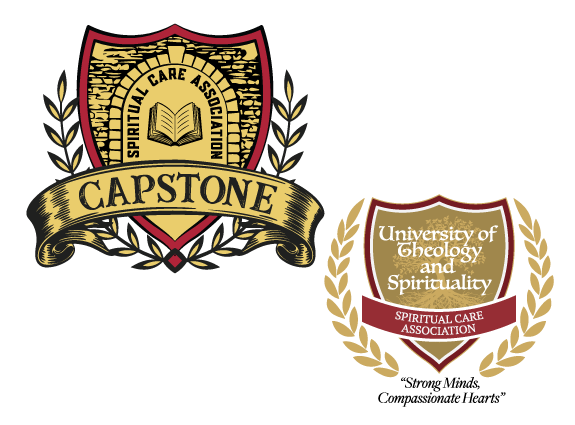
School of Chaplaincy

School of Chaplaincy
Doctor of Theology in Spiritual Care
Master of Theology in Spiritual Care
The CAPSTONE School of Chaplaincy provides students with the skill set and knowledge to serve as a chaplain in a variety of settings including health care, the military, first response, business, corrections, and the community.
Mastery is based on two documents prepared by panels of international interdisciplinary experts. The Quality Indicators outline the competencies and metrics to ensure that professional chaplaincy care is provided, the metrics that indicate such care is present, and evidence-based tools to measure that quality. The Scope of Practice includes 18 indicators which create the set of competencies required of professional chaplains. By successful academic study, critical thinking, research, and completion of clinical work, students will have the foundational competencies for chaplaincy and/or increase their current level of chaplaincy care. The program meets the competencies required by national professional chaplaincy associations to apply for board certification.
The School of Chaplaincy Learning Outcomes:
Student will demonstrate knowledge, skills and dispositions associated with:
- The body of knowledge in the field of chaplaincy, including the related cultural, technological, ethical, and professional competencies.
- Skills of critical thinking and analysis by investigating, generating, and synthesizing complex ideas and concepts at an abstract and/or applied level, critically evaluate contemporary debates and literatures in their field of study, and analyzing problems or issues, articulate appropriate solutions and justify propositions and/or professional decisions.
- Oral and written communication skills, including the academic and technical writing skills appropriate to the field of chaplaincy and applying enquiry-based learning and ways of thinking to new disciplinary and/or professional contexts and communicating complex ideas in a variety of formats to diverse audiences.
- Effective collaboration with peers, colleagues, and communities by demonstrating a high level of personal autonomy and accountability in the acquisition or application of knowledge or skills and an understanding of, and the ability to apply, the principles of teamwork and collaboration.
- Equity and diversity as these apply to effective practice in the field of chaplaincy.
- Knowledge and skills of leadership and advocacy as these apply to the field of chaplaincy.
- The organization, implementation, interpretation, and analysis of research appropriate to the field of chaplaincy.


